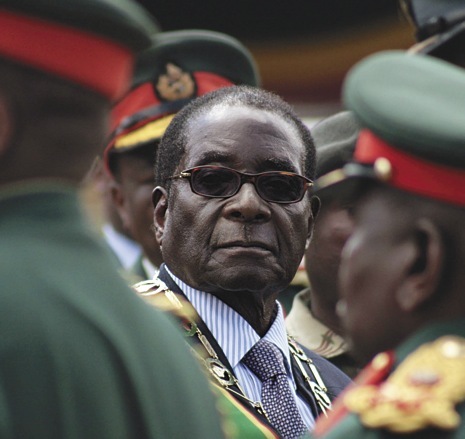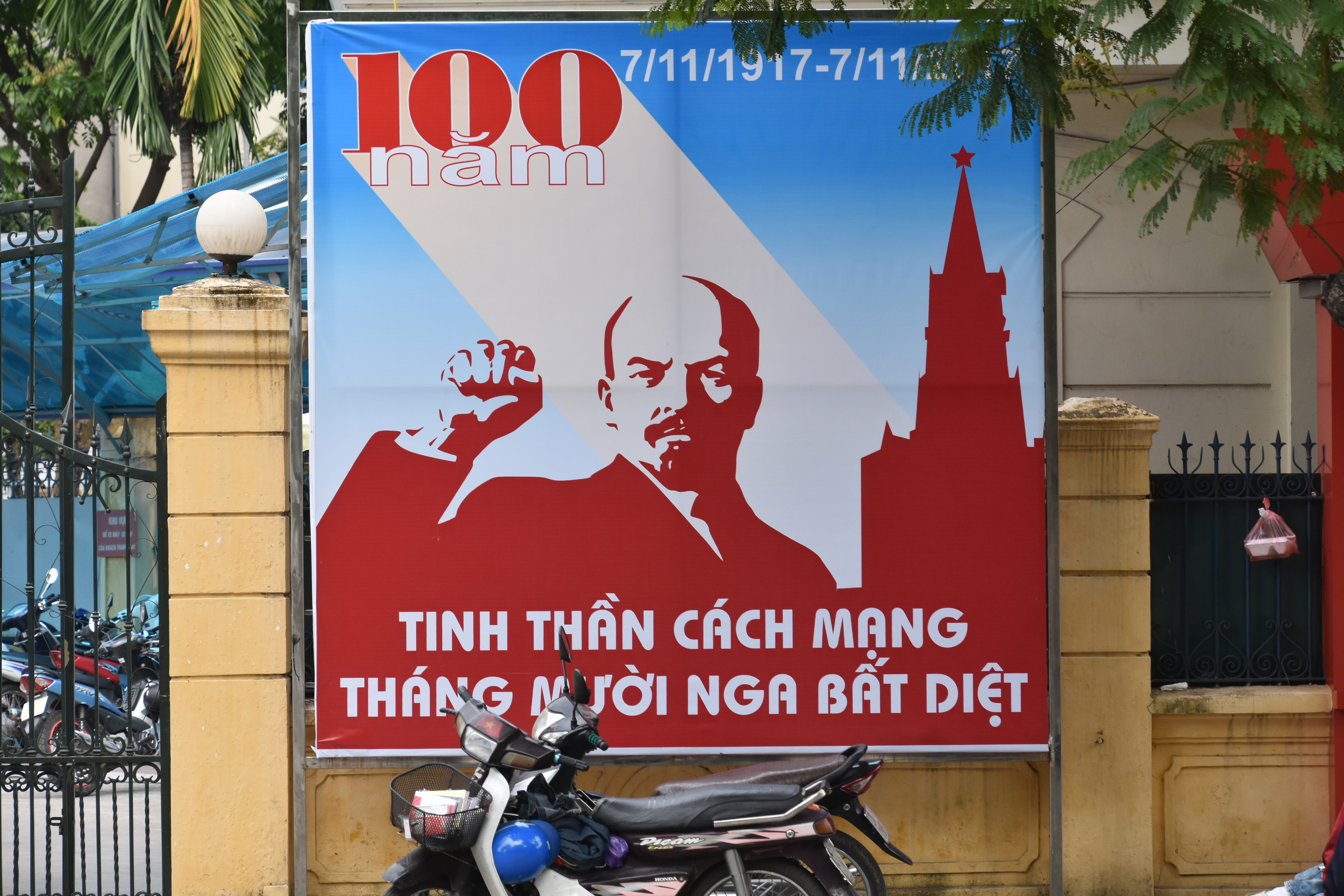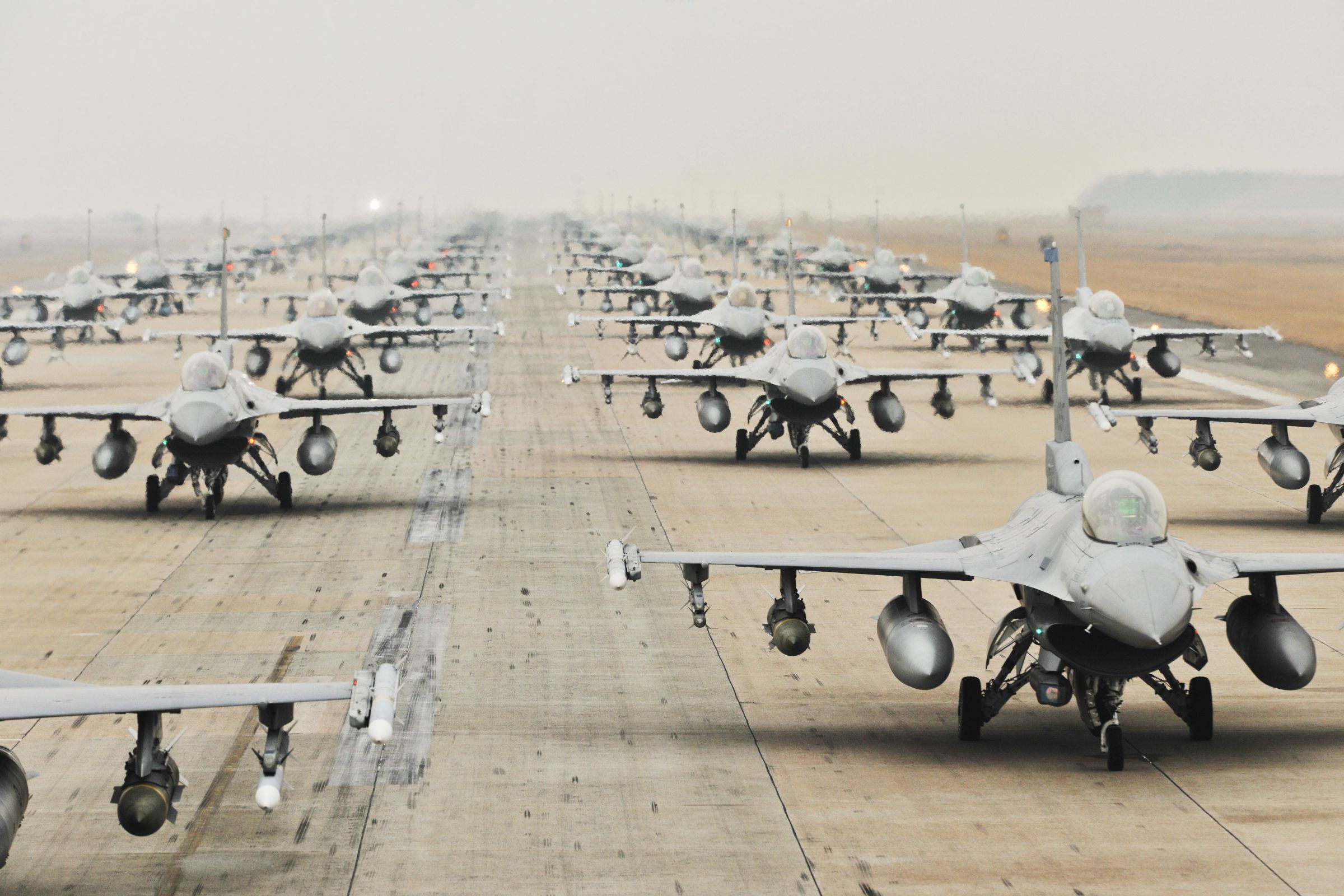14 minute read
Just and Unjust Coups d’état? Zimbabwe and the Ethics of Military Takeover
By Christopher J Finlay

“Robert Mugabe”, a-birdie. used under https://creativecommons.org/licenses/by-nc/2.0/
The phenomenon of ‘coup d’état’ has recently forced itself back into public consciousness. After the ouster of Hosni Mubarak under pressure of the protesters in 2011, Mohamed Morsi’s politically illiberal but democratically elected government was overthrown by the Egyptian military in 2013. By 2014, Abdel Fattah el-Sisi had stepped down as Commander-in-Chief of the Egyptian armed forces to run successfully for President. July 2016 saw an unsuccessful coup attempt in Turkey against President Recep Tayyip Erdogan by a faction within the military. And in November 2017, Zimbabweans awoke to see a man in military fatigues on the national television station reading out a prepared statement to inform the public that the military had seized control – but denying emphatically that it was engaged in a ‘coup’.
This denial is indicative of the ominous overtones of the word ‘coup’. By contrast with ‘revolution’, coup d’état isn’t generally regarded from a democratic point of view as a measure that belongs in the repertoire of legitimate political measures.
On the other hand, people are bound to have felt ambivalent about the news from Zimbabwe. Proponents of human rights would hardly be dismayed to hear that Robert Mugabe’s days as president were near an end. If he is replaced by someone committed to a better future for the country, then surely it will be tempting to judge the military initiative that brought him down a necessary evil.
If so, then it raises important questions for ethics and normative political theory: Are coups ever justified? And do we then we need a theory of ‘just and unjust coups d’état’ just as we have a theory of just war and a theory of justified revolution?
Defining Coups
First let’s think about the meaning of ‘coup d’état’ and how it is distinguished from other, similar things.
The centenary of October 1917 last month prompted renewed debate between a revived left that sees it as a promising moment of ‘revolution’ and liberal as well as conservative critics. The latter sometimes contested its status simply by denouncing the Bolshevik takeover as a ‘coup.’ This illustrates two things.

“Poster commemorating the Bolshevik Revolution, Hanoi” Richard Mortel. Used under https://creativecommons.org/licenses/by/2.0/
First, it shows that the word ‘coup’ is sometimes used in a way that implies it is unjustified by definition, that is, unjustifiable. This, in fact, might be why the army in Zimbabwe denied it was engaged in a coup. But it also draws attention to the “neighbourly” relationship between coup d’état and other, more positive terms such as “revolution” and “rebellion”.
The latter have an implicitly positive connotation in common usage in spite of similarities in the cases to which they refer. This is why the replacement of Morsi by el-Sisi in 2013-2014 is more likely to be called a coup than the overthrow of Mubarak in 2011. And yet both saw widespread anti-government protests combined with a decisive input from the military in determining the outcome.
So what are the characteristic features of the coup as opposed to the revolution? And which explain the negative associations of ‘coup’?
Actually, almost all the usual components of a coup may be permissible in the context of other kinds of action.
1. Coercion by threat of force is also a feature of just war, legitimate policing, and so on.
2. Deliberately instigating abrupt political change is something that revolutionaries aspire to and is widely seen as laudable if it is directed against a sufficiently oppressive regime.
3. Illegality: If coups are generally illegal, then they are likewise no different from revolution and popular rebellion.
4. Insubordination of the military comes close to a distinctive worry, but this too can be a good thing. Many philosophers argue that soldiers ought to disobey in manifestly unjust wars. And when soldiers refuse orders to suppress internal dissent by force, it may be morally praiseworthy rather than suspect. Likewise, if someone like Airforce General John Hyten says he would refuse an illegal order by the US President to launch a nuclear weapon, it should be seen as a very good thing.
5. Even the use of martial law or military administration is regarded as a justifiable lesser evil in post-conflict settings, for instance, where the absence of stable civilian institutions means that innocent people would otherwise be at risk of sustained violence.[1]
6. Finally, lack of popular support seems to mark out coups as undemocratic, distinguishing them from true revolutions and ‘popular uprisings’. But this is hardly definitional: many Zimbabweans are currently celebrating the fall of Mugabe, albeit after the fact, and at the height of opposition to Morsi, ‘fourteen million people took to the streets in protest against the government’ (Peter Hessler writing in The New Yorker).
Given the features it shares with other, seemingly acceptable practices, it is tempting to conclude with Hobbes’s that a coup d’état is just a revolution ‘misliked.’
That being said, I think there may be one other thing that helps explain the connotations of the term. This isn’t a feature of all coups, but occurs in an important subset. It’s that they involve the military taking the political initiative away from a civilian power. Some coups see one military faction seizing power from another one: I presume this will seem less troubling, all else being equal, from a liberal-democratic point of view.
Coups and the ‘jus ad rebellionem’
So let’s focus on the more worrying type of case. Could military coups against civilian rulers ever be justified?
The general presumption against coups probably expresses the right moral attitude, of course. Subversion of civilian control is one thing we don’t generally like to see. And the other common features of the coup – the violence, illegality, military insubordination, and coercion – also render it prima facie objectionable. Without special justification, none of these is permissible. But it’s also true that none is absolutely unjustifiable – not if we accept the assumptions underlying just war theory and liberal accounts of justified revolution. It is therefore probable that, theoretically, coups could sometimes be justifiable under certain conditions.
To adapt just war terminology, they’d have to satisfy conditions of jus ad rebellionem and jus in rebellione – and crucially, jus post rebellionem.[2] Let’s tease out plausible conditions from the hopes people might pin on the Zimbabwean plotters.
Zimbabweans had long suffered under a tyrannically undemocratic government that failed to secure the well-being of its subjects. Presumably we would not wish to licence generals to overthrow any government that it had reason to believe could be bettered. But one that failed to maintain an economy sufficient for a decent, let alone a flourishing, life might be liable to justified rebellion.
One way to try to encapsulate the idea of a justified coup is to view people as having a fundamental right of resistance against oppression, usually claimed against state and government. If they fail to discharge the duty to resist oppression and to secure the basis for a flourishing life, then the right may be claimed against others: against rebels or revolutionaries, or against foreign states under the Responsibility to Protect, for instance. And if it may be claimed against these, then it is hard to see why it couldn’t also be claimed, in some very peculiar cases perhaps, against military leaders if they are in a position to help: why couldn’t they be the agents who take on the duty of liberating and protecting the people?
“Military power has an affinity with domination that makes it uniquely unsuited to securing people from this face of oppression.”
Coups would satisfy this ‘just cause’ condition if they pursued it by either reducing oppression or halting a sharp or steady increase. They would also need to have a ‘reasonable chance of success’ in pursuing these goals, one sufficient to outweigh the significant chance of making things worse.
Things could get worse if they cause a total breakdown of such political order and security as the existing government had been able to maintain. Or second, to avoid this, coup leaders might be compelled (even with the best will in the world) to hold onto power indefinitely. The latter is a frequent feature of historical coups, if often due to ulterior motives. An attempted coup might make an oppressive government even worse: as happened, for instance, in Turkey where the plotters in July 2016 helped Erdogan legitimise much harsher methods in crushing dissent and opposition than were available to him before. The fact that military coups are not widely regarded as legitimate aided him in winning international support (Obama urged people to rally round the ‘democratically elected government’).
Coups should therefore be constrained by a robust ‘last resort’ criterion. They should never be taken where a less dangerous or harmful method of achieving legitimate goals is available, given these risks and others.
The just war condition of ‘right intention’ is crucial. Strict discipline must be maintained to prevent ulterior motives vitiating political outcomes. And any suspicion that these motives driving events or are likely to do so once the military has control is a compelling reason to call a coup off entirely.
Finally, the jus ad rebellionem would demand proportionality. The principle of just cause already implicitly incorporates one notion of proportionality in the demand that dangerous measures be taken only for the sake of the most fundamental rights. But ‘wide proportionality’ (as Jeff McMahan calls it) also demands that any costs or harms likely befall bystanders as a result of deposing the government be proportioned to the relevant benefits it aims at. Coups can be bloodless, but they can also cost many lives.
A ‘jus in rebellione’
If violence is demanded in a justified coup, then it ought to be restrained by the same conditions of jus in bello as any other form of armed contest.
Discrimination demands that only those opposing a justified coup by force of arms should be regarded as ‘combatants’ and liable to attack. Captured ‘enemies’ shouldn’t be summarily executed but treated as POWs. If they are accused of crimes, they should be tried through proper judicial procedures, not summarily executed or ‘disappeared’. (The Indonesian coup d’état of 1965 was followed by the slaughter of roughly one million suspected communists.)
“Coups should therefore be constrained by a robust ‘last resort’ criterion.”
But given the worry about coups that, by subverting civilian rule now, they will undermine it indefinitely, it is equally important that plotters be guided by considerations of jus ex rebellione and jus post rebellionem. They need a clear plan for terminating military interference with the civil power and for establishing and supporting an adequate post-coup political order based on human rights and democratic principles.
Violence and domination
It is certainly possible to imagine hypothetical exceptions in which a coup would be justified in the way I have sketched out. The 20 July plot to assassinate Hitler, for example, attempted a military coup, albeit one in a context where the distinction between military and civilian powers was moot.
However, there is another worry, one related (though not identical) to the just war criterion of ‘legitimate authority.’ Military coup leaders are generally a great deal less promising than the other types of agent in whom hopes of liberation from oppression might be invested.
For instance, when we hope that foreign states will intervene, we imagine soldiers on the ground or in the air, perhaps, but subject to civilian political control. Revolutionary movements sometimes maintain careful differentiation between political and military leadership and subordinate the latter to the former. But military coups are by definition those which are led by military officers. And I think this is a good reason to regard them uniquely suspect.
One way of specifying the danger is to highlight the different dimensions of social and political oppression. A life may be less than flourishing due to deprivation, resulting from injustice or discrimination or simply from government incompetence. But it is also vitiated when people suffer from unjust domination: when they are subject to forms of power that are not answerable to their interests or preferences. Military power has an affinity with domination that makes it uniquely unsuited to securing people from this face of oppression.

“The bigger picture: US, ROK forces show off air power”, DVIDSHUB. Used under https://creativecommons.org/licenses/by/2.0/
Partly, this has to do with the sort of agency that soldiers exercise as a profession. As Hannah Arendt argued, political philosophers have sometimes mistakenly regarded societies as akin to some sort of raw material that it is the task of the political leader to refashion: if people are the wood, and leaders are the carpenters, then the means of fashioning will be modelled on the bladed and blunt-force instruments typical of that craft. The analogy leads to a conflation of politics, power, and the application of force.
As ‘managers of violence’ (Samuel Huntington’s expression), military officers seem likely to share this misconception. To a general with a hammer, everything will tend to look like a nail. Officers will view the task of reforming the state is being susceptible to the tools in which they have greatest expertise. Force is then not used only as a means of defeating those taking up arms against the coup, but also to eliminate those with ideological inclinations or political affiliations that don’t match the blueprint followed by the army.
The cure and the disease
In fact, across the spectrum of cases that are most likely to need urgent, remedial action, the military will often have a very close affinity with precisely those evils that need remedy. If violent oppression is the evil, it is most likely already being perpetrated by means of the armed forces. If so, it seems naive to imagine the army itself as a natural saviour of the people. If the disease is corruption, it is also corruption that frequently motivates plotters in the first place – as Edward Luttwak remarks, corrupt states offer great material rewards to successful plotters – in other states, coups just aren’t worth the personal risk. Likewise, if rebellion is justified against tyrannical, authoritarian rule, then placing hopes in senior figures from what is traditionally the most consistently authoritarian social institution seems misguided.
It’s not just that the cure is worse than the disease; the cure typically is itself an offshoot of the disease.
Zimbabwe
Specifying what an exceptional, justified case would look like therefore shouldn’t be undertaken for the purposes of guiding and advising would-be plotters, but could help specify the very demanding conditions that they would have to satisfy before anyone could endorse their actions. This makes it easier to debunk the claims of the men in military fatigues when they appear on the news by specifying the criteria by which, more often than not, condemned.
As for Zimbabwe, the jury is still out. It looks more promising in some respects than some of the two hundred plus coups seen previously in African states having ‘departed from the script’ in a probable attempt to secure international legitimacy. However, the coup’s attempts to claim legality and a constitutional mandate for its actions are open to doubt. In particular, the arrest of political opponents of Emmerson Mnangagwa (described by Stuart Doran as Mugabe’s former ‘hatchet man’) is worryingly redolent of the coups of the past. Now that Mnangagwa has been sworn in as President, we will have to wait and see.
[1] On justifiable military occupation, see Cécile Fabre, Cosmopolitan Peace, Oxford: Oxford University Press, 2016, ch. 3.
[2] The fact that ‘rebellio’ could also encompass other forms of action such as revolution is fine since both practices involve rebellion in one sense or another. But I’d welcome a better suggestion if anyone has one!
Disclaimer: Any views or opinions expressed on The Ethical War Blog are solely those of the post author(s) and not The Stockholm Centre for the Ethics of War and Peace, Stockholm University, the Wallenberg Foundation, or the staff of those organisations.


